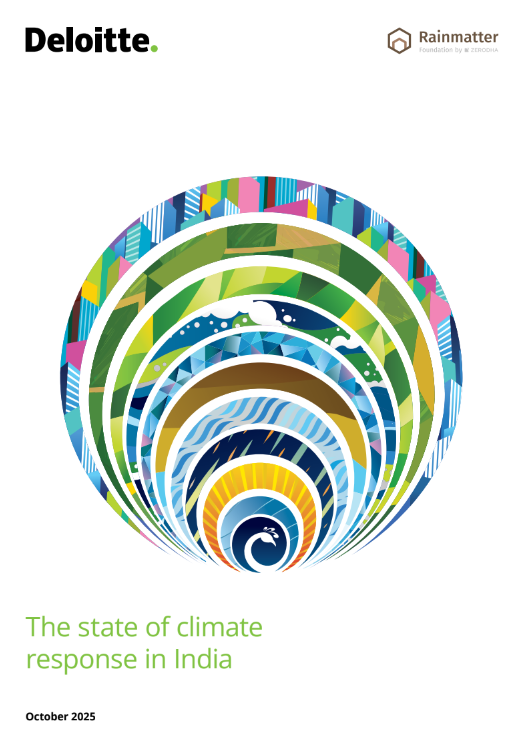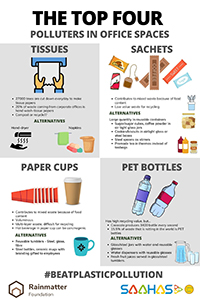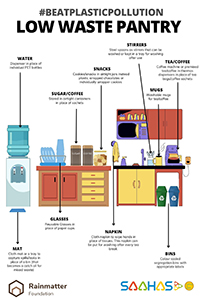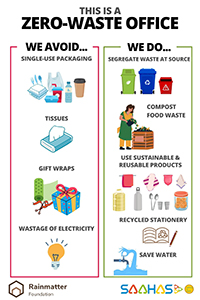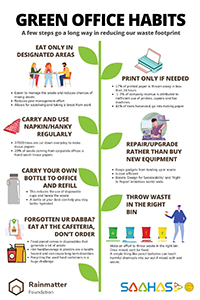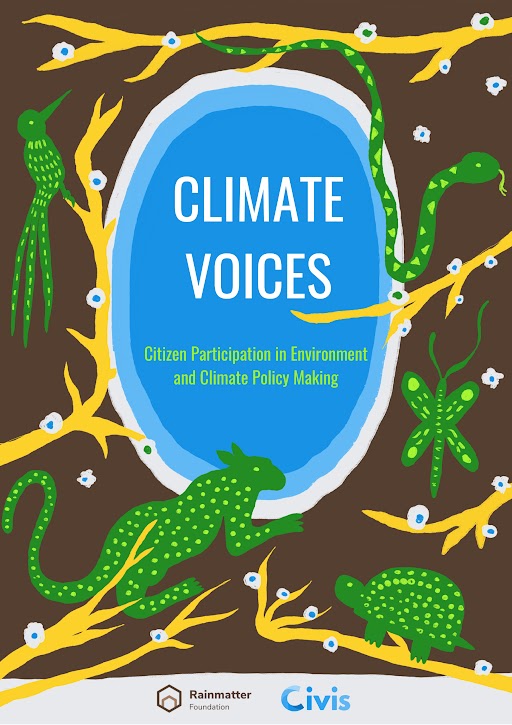Resources
The state of climate response in India
A collaborative initiative by Deloitte India and Rainmatter Foundation, the report is a call-to-action for businesses, governments, innovators, and policymakers to lead the shift to a climate resilient future.
Rapid urbanisation, shifting rainfall, and rising temperatures pose real threats to food systems, water security, and power supply. But these same challenges present an opportunity to embed resilience into the country’s growth story. Businesses can unlock new opportunities for resilience and innovation by embracing interconnected complexity that climate change poses and coming out of silos. Actions must permeate every decision, from sourcing and materials to product lifecycles and efficiency.
Read the report to dive deeper into climate change indicators, interconnected risks, citizen survey, corporate readiness survey, case studies, and pathways to act. [Read more]
Download
Rapid urbanisation, shifting rainfall, and rising temperatures pose real threats to food systems, water security, and power supply. But these same challenges present an opportunity to embed resilience into the country’s growth story. Businesses can unlock new opportunities for resilience and innovation by embracing interconnected complexity that climate change poses and coming out of silos. Actions must permeate every decision, from sourcing and materials to product lifecycles and efficiency.
Read the report to dive deeper into climate change indicators, interconnected risks, citizen survey, corporate readiness survey, case studies, and pathways to act. [Read more]
Download
Zero Waste Offices
The plastic cup nonchalantly tossed in the bin by the water filter has by now made its way to a landfill on the outskirts of the city.
The confetti at the end of the celebration is flowing alongside our waters into the closest river.
The tiniest particles of plastic are a part of our systems as much as the air we breathe.
It is out of our sight in a second, but it impacts our lives forever.
The amount of plastic that enters our oceans every year is over 15 million metric tons.
The time for which most of these single-use plastic items are typically used is less than 15 minutes.
Once in a landfill or the environment, plastic never fully biodegrades. Fortunately, the plastic waste generated at events - from things such as cups, utensils, plates, water bottles - is avoidable.
Adopting a low-waste or zero-waste lifestyle is a matter of setting a culture as much as a pledge. It can take the shape of individual responses like encouraging employees to carry their own cutlery to a community response like segregating and recycling waste. As industry leaders you can help set the tone. Here are some resources to help you get started.
Once in a landfill or the environment, plastic never fully biodegrades. Fortunately, the plastic waste generated at events - from things such as cups, utensils, plates, water bottles - is avoidable.
Adopting a low-waste or zero-waste lifestyle is a matter of setting a culture as much as a pledge. It can take the shape of individual responses like encouraging employees to carry their own cutlery to a community response like segregating and recycling waste. As industry leaders you can help set the tone. Here are some resources to help you get started.
Guidebook
You can view and download the PDF that lists all the ways to help maintain zero-waste offices.
DownloadPosters
You can view and download the posters to help maintain zero-waste offices.
Climate Voices Handbook by Civis
Rainmatter partner Civis a community-driven non-profit platform that encourages citizen participation in the lawmaking process by enabling people’s feedback on laws and policy decisions, and through awareness generation, and education on matters of civic importance.
The ‘Climate Voices’ is a go-to guide for anyone who wants to make a difference in India’s environmental law-making and play an active role shaping our climate policies. Through real-life examples of individuals, communities, and civil society organizations, readers can discover how public consultations give a voice to everyone, allowing them to express their views and interests on how their environment should be managed.
The handbook explores the roles and responsibilities of three stakeholders - citizens, civil society and media, in co-creating India’s environmental laws by participating in public consultations on draft legislation.
Download
The ‘Climate Voices’ is a go-to guide for anyone who wants to make a difference in India’s environmental law-making and play an active role shaping our climate policies. Through real-life examples of individuals, communities, and civil society organizations, readers can discover how public consultations give a voice to everyone, allowing them to express their views and interests on how their environment should be managed.
The handbook explores the roles and responsibilities of three stakeholders - citizens, civil society and media, in co-creating India’s environmental laws by participating in public consultations on draft legislation.
Download

